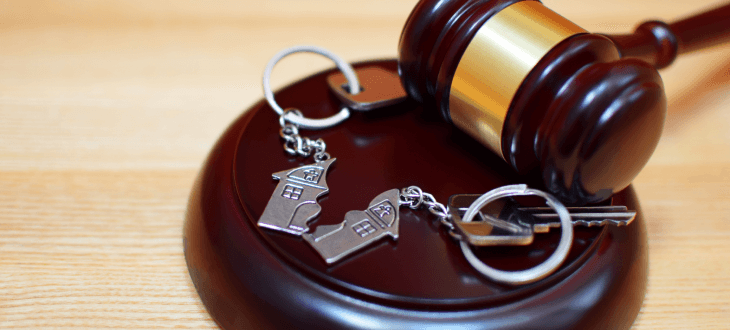Property division in a Florida divorce is governed by the principle of equitable distribution, aiming for a fair allocation of marital assets and debts. This process differentiates between marital and non-marital properties, considering factors like the duration of the marriage and each partner’s financial situation. If you are going through a divorce, you should understand the different types of property you and your spouse own, as the outcome significantly impacts both parties’ futures.
Understanding Property Division in Florida
In Florida, the division of property during a divorce follows the equitable distribution law, which seeks a fair, though not necessarily equal, division of assets and liabilities. Key to this process is distinguishing between marital assets—those acquired during the marriage—and non-marital assets, which belong to one spouse before the marriage or are defined by specific criteria, such as inheritances or gifts to one spouse. Debts are treated similarly, with responsibility divided in a manner that is equitable to both parties. This approach aims to ensure that both spouses leave the marriage on stable financial ground, considering each partner’s contributions and needs moving forward.
How We Can Help
At Tupper Law, we work to secure a fair division of assets in your divorce. We ensure every asset is accurately valued, from real estate to retirement accounts. In addition, we can skillfully negotiate on your behalf, aiming to find common ground through mediation or advocate strongly for you in court. Our approach is tailored to your unique situation, striving for outcomes safeguarding your financial well-being. We can handle the legal complexities, allowing you to focus on moving forward with confidence.
Factors Influencing Property Division
In Florida, the equitable division of property is influenced by various factors, ensuring that the distribution is fair and accounts for the unique circumstances of each divorce case. Key factors considered include:
- Length of the Marriage: Longer marriages may see a more equal division of assets.
- Economic Circumstances: The financial situation of each spouse at the time of division.
- Contributions to the Marriage: This includes income, caretaking, and contributions to the other’s career or education.
- Future Needs: Consideration of each spouse’s needs post-divorce, including parenting arrangements.
- Non-Marital Assets: The impact of assets owned individually before the marriage or acquired as personal gifts or inheritances.
Florida’s New Divorce Stabilization Bill
Florida’s “Divorce Stabilization Bill”, designed to standardize divorce proceedings, has recently been approved by the legislature. It clarifies various aspects of property division in a divorce. In particular, it will require written documentation for any gifts of real property between spouses in compliance with Florida’s fraud laws. The bill also proposes uniform valuation methods for closely held businesses and introduces “interim partial distribution” for asset division under extraordinary circumstances, aiming for financial stability during the divorce process. Although not yet law, the bill’s progression and the broad support it has received reflect efforts to address existing divorce complexities in the state.
Common Challenges and How to Navigate Them
Divorcing couples often encounter challenges during property division. One such challenge involves the decision to retain the marital home. It’s important to assess each individual’s financial ability to maintain the home independently and the potential impact on any children involved. Another common issue is dividing retirement accounts in a manner that avoids excessive taxes. Here, collaborating with financial advisors can help ensure these assets are divided in a tax-efficient way. Finally, couples can face conflicts on how to split shared businesses. Obtaining a fair valuation and exploring options such as one spouse buying out the other’s interest can be viable solutions.
Effective communication and a willingness to compromise are essential when facing these challenges. In situations where reaching an agreement seems challenging, turning to mediation can offer a constructive way forward, allowing both parties to find mutually agreeable solutions with the help of a neutral third party.
Contact an Experienced Jacksonville Property Division Attorney
Tupper Law is dedicated to guiding you through the complexities of property division with a strategic and compassionate approach. Our team is ready to ensure your financial security and peace of mind. Ready to take the next step? Contact us today to schedule your personalized consultation and start shaping your future.
Located in Jacksonville, Florida, Tupper Law P.A. stands as a distinguished legal practice dedicated to offering high-quality legal advice, advocacy, and representation. Our services extend beyond Jacksonville to Yulee, Nassau County, Duval County, Clay County, Orange Park, and Baker County.
